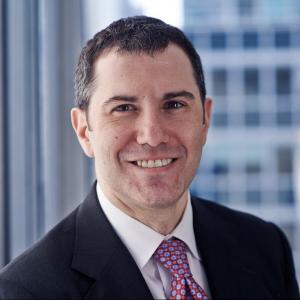Episode Introduction
Jordan Wruble: There’s a big question I’ve been wondering about--that you may be wondering about? And that is how this coronavirus pandemic and the economic damage it’s doing will change our politics. I think most of us have moments when we’re optimistic. For all the pain we’re going through now, there’s a chance some good can come from this. Maybe we’ll realize what really matters in our lives. Maybe we’ll come closer together. But there’s another possibility. In the past when the world has been turned upside down by a crisis, it hasn’t always set us on a new path. In fact, often t has accelerated trends that have been building, and one of those trends, which has been running through global politics, is polarization. So here’s my question: Will the coronavirus pandemic make our politics more polarized or less? I’m Jordan Wruble. I’m a partner at Brown Advisory, and I’m really excited today to have the chance to speak with one of the world’s great thinkers about polarization, about the rise of populism, and about what it is doing to our democracies.
Listen and subscribe to our podcast from your mobile device:
Guest

Yascha Mounk, Ph.D.
Associate Professor of Practice, International Affairs, Johns Hopkins University
Yascha Mounk, Ph.D., is a writer, academic and public speaker known for his work on the rise of populism and the crisis of liberal democracy. Born in Germany to Polish parents, Dr. Mounk received his B.A. in history from Trinity College, Cambridge, and his Ph.D. in government from Harvard University. He is now an associate professor of the Practice of International Affairs at Johns Hopkins University, where he holds appointments in both the School of Advanced International Studies and the Agora Institute. Dr. Mounk is also a senior advisor at Protect Democracy, a senior fellow at the German Marshall Fund, a senior fellow at Harvard's Ash Center for Democratic Governance, a senior fellow at New York University's Reiss Center on Law and Security, and a term member of the Council on Foreign Relations. Mounk has written three books: Stranger in My Own Country: A Jewish Family in Modern Germany, a memoir about Germany’s fraught attempts to deal with its past; The Age of Responsibility: Luck, Choice and the Welfare State, which argues that a growing obsession with the concept of individual responsibility has transformed Western welfare states; and The People versus Democracy: Why Our Freedom Is in Danger and How to Save It, which explains the causes of the populist rise and investigates how to renew liberal democracy. His latest book has been translated into 11 languages and hailed as one of 2018's best books of the year by multiple publications, including the Financial Times. A contributing editor at The Atlantic, Dr. Mounk regularly writes for newspapers and magazines, including The New York Times, The New Yorker and Foreign Affairs. He is also is also a regular columnist or contributor for major international publications, including Die Zeit, La Repubblica l'Express, Folha de Sao Paolo, Kultura Liberalna and Letras Libres.
Host

Jordan Wruble
Head of Manager Research, Brown Advisory
Jordan is a partner and serves as the head of manager research. He helps lead the firm’s Investment Solutions Group, which performs manager research and selection, makes asset allocation recommendations, and creates and manages specialized partnership funds for individuals, families, endowments and foundations. Jordan is also a portfolio manager and advises some of Brown Advisory’s largest clients on their investment decisions. He sits on a number of the firm’s investment committees and has served on the operating committee. Prior to joining Brown Advisory in 2013, he was the director of portfolio research for Hutchin Hill Capital, a multi-strategy hedge fund. At Hutchin Hill, Jordan advised on capital allocation, risk management, performance attribution and portfolio construction across equity, credit, macro and quantitative strategies. Prior to Hutchin Hill, Jordan was a senior vice president and portfolio manager at Lehman Equities Strategies, a proprietary capital investment arm of Lehman Brothers. Jordan joined Lehman from Sagamore Hill Capital, a multi-strategy hedge fund firm, where he was a portfolio manager in long/short equity and a senior analyst in special situations equity and credit investments. Earlier in his career, Jordan worked in private equity, corporate mergers and acquisitions and founded an enterprise software company. Jordan earned his undergraduate degree at Stanford University and his MBA at Harvard Business School.
Background Reading
- No Testing, No Treatment, No Herd Immunity, No Easy Way Out, The Atlantic, April 28, 2020
- For the First Time, I'm Doubting My Decision to Come to America, The Atlantic, March 28, 2020
- This is Just the Beginning, The Atlantic, March 25, 2020
- This is How Democracy Dies, The Atlantic, January 28, 2020
- TEDx Talk: How to Save Democracy, October 2017
- The People vs. Democracy: Why Democracy Is in Danger & How to Save It
